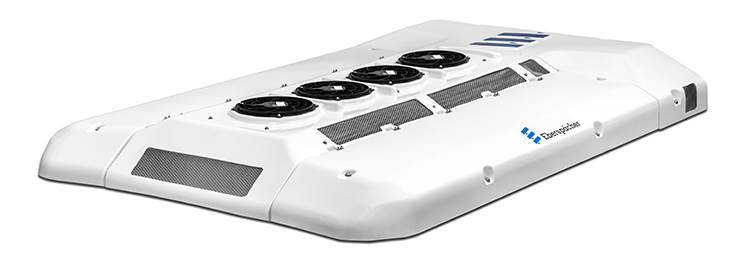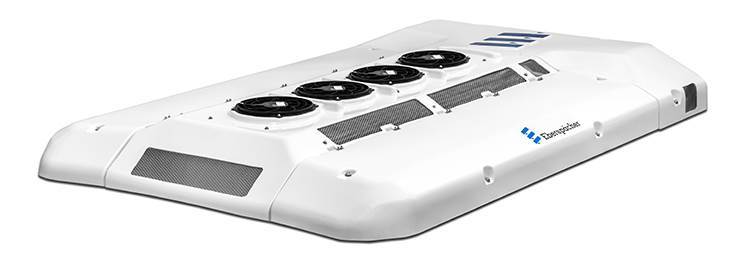The Indian electric bus market is growing rapidly and with government-led initiatives, the country is driving forward the electrification of public transport with a focus on large cities. At Prawaas 4.0, which is to be held in Bengaluru from August 29 to 31), Eberspaecher will be presenting its portfolio of efficient thermal management systems for buses with all drive types. The focus (at Booth 65 to 74 in Hall 4) will be on the AC135. The system supplier is now expanding the versatile product family with two new variants featuring a heat pump and presents them to the public on site for the first time.
Eberspaecher has been responding to this trend for some time with the AC135 roof-mounted air- conditioning system. With different variants, the thermal management expert offers a cost-effective and standardized platform for all bus types and performance classes, including electric drives. Now, Eberspaecher is adding two heat pump models to the AC135 family. The compact dimensions of 2.95 m in length and 29.5 cm in height are not the only convincing features. Their simplified refrigerant reverse cycle is even more reliable. In addition, it saves weight to only 202 kg in the lightest version. The AC135 Heat Pump models provide cooling capacities of 30 to 38 kW and heat between 22 and 26 kW via the heat pump, depending on the variant. Production will start in mid-2025 at the Eberspaecher plant in Bengaluru.
AC135 offers greater efficiency through battery cooling

With its simplified refrigerant circuit and low weight, the AC135 in its heat pump version is not only reliable, but also features low consumption rates.
The AC135 all-electric versions with and without heat pump are all optionally available with an integrated module for battery cooling. This allows the temperature of the vehicle battery to be kept constant, resulting in greater efficiency and a longer battery life. Integrating the battery module directly into the air conditioning system saves valuable space on the roof of the bus and reduces the overall weight of the vehicle. In addition, the electric thermal management system also has an integrated compressor and an inverter. With their modular approach, all AC135 versions share the same roof footprint. Without changing the design of their electric bus, this allows manufacturers to install a system with or without a heat pump for different climate regions.
Versatile product family for all drive types
Overall the AC135 platform convinces with its lightweight construction that offers lower consumption rates. It provides short installation times and a small roof footprint due to the reduced length, in its smallest version only 1.91 m. The parallel high one-piece design combines the advantages of a short parallel unit with side or centre return air grilles for easy access and serviceability.
Depending on the requirements, all variants of the product family are available with a brushed or brushless motor. The unit runs with a variety of controls, including the E-Control from Eberspaecher. For conventional drives five variants of the AC135 Conventional bring 25 to 50 kW of cooling performance. They feature four to eight blowers for passenger compartments of different sizes.
AC332-345: One unit for all coaches
With its central or offset return air grilles, the AC332-345 fits onto both standard and sleeper coach applications.
In addition, the AC332-345 will be on display at Prawaas 4.0, as a cost-effective high-capacity inline unit for coaches with conventional drive. It provides 32 to 50 kW cooling performance for use in tropical and high ambient zones.
With central or offset return air grilles, it fits onto both standard and sleeper coach applications, where the aisle is not situated in the middle of the vehicle. The development by the Indian Eberspaecher subsidiary for the local coach market is the third generation of a proven product series with improved reliability and well-known performance.
ALSO READ:
Electric CV OEMs sell over 6,300 units in first 7 months of CY2024
